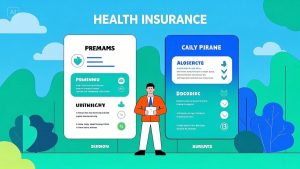Aimed to appeal swing voters with just weeks to go before the election, former President Donald Trump has revealed yet another striking tax proposal aiming at making the interest paid on auto loans totally deductible. This most recent lure arrived on a stage in Michigan, the revered territory of the automotive sector. Not quite poetry, but almost so. Like he did when he suggested cutting taxes on tips while in the glitzy, service-oriented state of Nevada, roll out a significant tax reform in the country where vehicles are born.
Presenting his ideas before the Detroit Economic Club, Trump said this tax action will transform the automotive sector. Claiming to have heard from an audience member who likened the notion to the genius of inventing paper clips, he seemed to have plucked a rabbit out of a tax code hat. One naturally wonders what kind of comparison is appropriate; maybe someone needs a refresher on the craft of hyperbole.
Emphasizing the exorbitant expenses Americans pay for owning a vehicle these days, made worse by the unrelenting inflation straining everyone’s purse, Trump delivered a speech full of his usual swagger. His proposal promises great stimulus for home auto manufacture and promises to make car ownership much more reasonably priced for countless working people. If one wasn’t paying close attention, one might practically hear cash registers ringing in unison all throughout the country as Trump hailed this idea as “phenomenal.”
But the plan has a high cost, as with most government projects that sound too good to be true. Although the precise cost is yet unknown, this approach is expected to greatly add to the government debt. Trump seems to be leaving the financial math to others even if he might be dreaming of a fiscally future-looking America. Still, one cannot help but find the irony in candidates calling for financial stewardship while offering ideas that would independently add trillions to the national load.
The Committee for a Responsible Federal Budget’s new study exposes the overwhelming scope of these audacious ideas. Even for the most fervent supporters of fiscal deficit magic tricks, Trump’s proposal could balloon the national debt by an eye-watering $7.5 trillion, which is really hard to ignore. Kamala Harris’s proposal, which circles a $3.5 trillion hike, is not exactly a budget-friendly effort either. Of course, both contenders are discounting such figures in favor of a game of “who can spin it more favorably.”
Therefore, as the former President presents his newest tax reform with all the flair of a carnival barker, it begs a relevant question: Can he really influence enough undecided voters—or anyone with a calculator—by advocating tax benefits on vehicle loans? One thing is for sure: the irony of a tax break for automobile owners at a time when taxes seem to be invading everything else continues to thrill the true-blue, fiscally conscious opponents observing from the sidelines.




